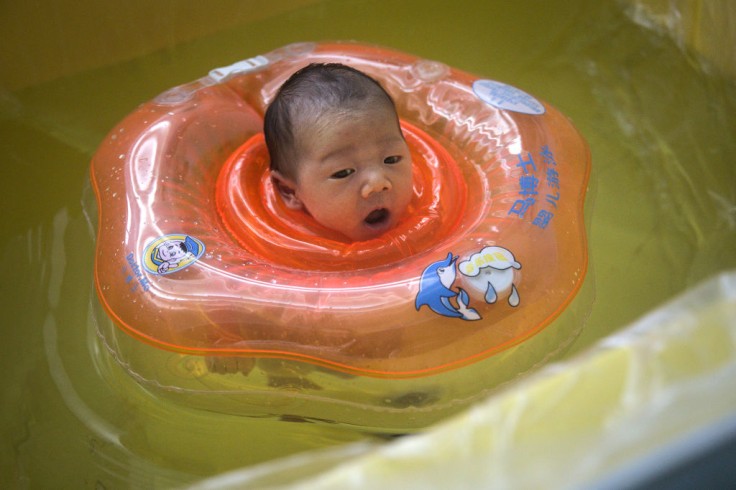
Inflatable baby neck floats, marketed as the Otteroo, have been on the market for about a decade and have gained immense popularity among parents. The manufacturer claims that these floats gently support a baby's head above water during bath or pool time, allowing them to move freely and play.
The product comes in two versions: one for babies as young as 2 weeks old and another for children up to 35 pounds. Additionally, it has been promoted as a potential water therapy tool for special-needs babies. However, recent incidents and warnings from regulatory agencies have raised concerns about the safety of these neck floats.
Otteroo Defends Product Safety Amidst FDA and CPSC Alerts
Despite selling an impressive 430,000 units, the Otteroo has been linked to several injuries and, tragically, at least one infant death. Both the Food and Drug Administration (FDA) and the Consumer Product Safety Commission (CPSC) have issued warnings declaring the product unsafe for use. In June 2022, the FDA publicly cautioned against using baby neck floats, especially for babies with special needs, due to the potential risk of neck strain or injury. The FDA also pointed out that some baby neck floats were being marketed as water therapy tools without the agency's approval.
Five months later, the CPSC added to the concerns and specifically singled out Otteroo. The agency revealed that a 6-month-old infant drowned in Maine in 2020 after slipping through the neck hole of an otter. Additionally, in New York in 2022, a 3-month-old baby suffered serious injuries in a similar situation. The CPSC disclosed a total of 68 incident reports involving babies having to be rescued by caregivers, some of which referred to the first version of Otteroo recalled by the company in 2015.
Despite these warnings and incident reports, Otteroo remains defiant. The company's founder, Tiffany Chiu, denies that their products are unsafe and rejects the need for a recall. Chiu asserts that the death in Maine was due to unique circumstances, and she believes that babies can potentially slip into water from various products, including bath seats or parents' hands. Otteroo claims to have increased warning labels and required customers to acknowledge potential hazards during purchases.
Chiu also mentioned that the company has been in communication with the FDA regarding registering the neck floats as medical devices. They are finalizing three studies aimed at addressing the FDA's concerns regarding potential neck strains or injuries. Additionally, Otteroo has received feedback from pediatric therapists who find value in using the product during water therapy sessions.
However, both the FDA and the CPSC maintain their stance against the use of baby neck floats, including Otteroo. The FDA insists that it will update the public if any new information becomes available, while the CPSC maintains that all models of the Otteroo pose significant risks and urges parents to stop using them.
Otteroo Founder Stands Firm, Claims Product Warnings Are Sufficient
Consumer Reports' safety experts also echo these concerns and emphasize that relying solely on warnings is inadequate. They reiterate that the use of these products can lead to death or serious injury, and they encourage users to report any incidents to the CPSC.
Despite the warnings and mounting incidents, Otteroo baby neck floats are still available for purchase on the company's website. The product was once sold through other platforms like Amazon and Zulily but has since been removed from sale due to safety concerns. However, a recent incident involving a 7-week-old boy, where a partially deflated Otteroo put pressure on his neck, further highlights the potential risks associated with the product.
The controversy surrounding the Otteroo baby neck floats raises important questions about product safety and regulation. While the manufacturer insists on the product's benefits, the warnings from regulatory agencies and incidents reported by consumers urge parents to exercise caution when considering such flotation devices for their infants.
Related Article : Baby Product Maker 4moms Recalls More Than 2 Million Infant Swings And Rockers After Infant's Death